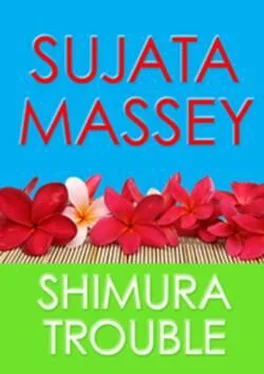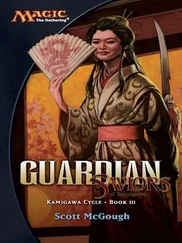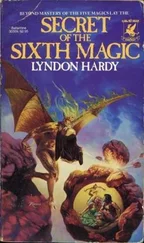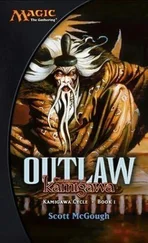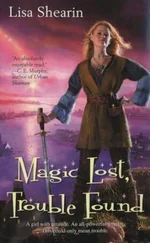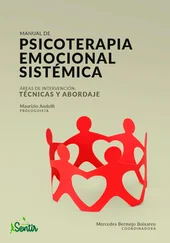Sujata Massey - Shimura Trouble
Здесь есть возможность читать онлайн «Sujata Massey - Shimura Trouble» весь текст электронной книги совершенно бесплатно (целиком полную версию без сокращений). В некоторых случаях можно слушать аудио, скачать через торрент в формате fb2 и присутствует краткое содержание. Жанр: Детектив, на английском языке. Описание произведения, (предисловие) а так же отзывы посетителей доступны на портале библиотеки ЛибКат.
- Название:Shimura Trouble
- Автор:
- Жанр:
- Год:неизвестен
- ISBN:нет данных
- Рейтинг книги:3 / 5. Голосов: 1
-
Избранное:Добавить в избранное
- Отзывы:
-
Ваша оценка:
- 60
- 1
- 2
- 3
- 4
- 5
Shimura Trouble: краткое содержание, описание и аннотация
Предлагаем к чтению аннотацию, описание, краткое содержание или предисловие (зависит от того, что написал сам автор книги «Shimura Trouble»). Если вы не нашли необходимую информацию о книге — напишите в комментариях, мы постараемся отыскать её.
Shimura Trouble — читать онлайн бесплатно полную книгу (весь текст) целиком
Ниже представлен текст книги, разбитый по страницам. Система сохранения места последней прочитанной страницы, позволяет с удобством читать онлайн бесплатно книгу «Shimura Trouble», без необходимости каждый раз заново искать на чём Вы остановились. Поставьте закладку, и сможете в любой момент перейти на страницу, на которой закончили чтение.
Интервал:
Закладка:
“What do you mean?” Edwin asked. “I can help you find him; I’m good at tracking people down…”
“No. I mean, I don’t want to find him. We’re not engaged anymore.”
“Oh, sorry to hear that!” Edwin said, and Margaret looked at me with sympathy.
“Please take this small, unworthy token. It’s not very good, but all we could find.” Tom blessedly interrupted the situation by offering Edwin a gift bag containing a bottle of California chardonnay we’d chosen at the Safeway.
“Very kind. Thank you!” Edwin waved us all to follow him into the tidy living room, which looked as if it had been decorated in the early eighties, with floral-chintz sofas, and lots of rattan. A young girl, her face hidden in a thick copy of Modern Bride, was lying on the carpet close to the air-conditioner. I sat down on a floral-patterned sofa with my father. Edwin put the bottle of wine into a cabinet which I saw already held many bottles of wine and hard liquor, some still in the boxes. So it seemed he rarely drank.
“Courtney!” Edwin called to the girl on the floor. “I told you before, when the guests come in, serve the pupus.”
Before I could greet her, Courtney had shot up and gone through the kitchen door. Moments later, she returned precariously carrying a tray of deep-fried hors d’oeuvres. While everyone oohed and ahhed over the golden brown minced shrimp balls and oversized potato and eggplant tempura, I looked anxiously at my father. Fried foods were highest on his list of banned foods. Now temptation was staring at him from a blue and white platter, and he was stretching out a hand.
“Otoosan!” I whispered loudly.
“I cannot refuse. That would be rude,” my father said in a low voice before popping a shrimp ball in his mouth.
Tentatively I took a shrimp ball, biting through the crisp, golden brown crust to taste the freshest, sweetest shrimp I’d ever eaten, finely minced and exuberantly seasoned with biting, fresh scallions and cilantro leaves.
“This is delicious!” I said after I’d swallowed it. “Who made them?”
“It’s from a little okazu-ya in Waipahu. If you like okazu snack foods, I can tell you all the best places,” Margaret said.
“Please do,” I said, wondering how, if the food was take-out, it was so very hot and crisp. The answer came when I glanced at the stove and saw a deep pan of oil. The snacks had been refried at home, making them even unhealthier.
“Eat more!” Margaret urged. “I’m sorry to say that I don’t do much around the house, ever since the kids got big and I started working.”
“Ah! Do you work nearby?” Uncle Hiroshi asked, smiling.
“Quite near. I’m director of housekeeping at the hotel.”
The smile on Uncle Hiroshi’s face froze, and I imagined the calculator in his banker’s brain had made a judgment on the family. And I too was recalling all the Japanese maids in the old novels I was reading about Hawaii, and how in the newspaper article I’d read, activists had rued that the proposed new jobs in the area would be mostly in the service industry.
“I’m too tired after work to do much cleaning around here-and I have to admit that I’m not much of a cook, especially of complicated Japanese dishes. I’m not full Japanese like you; I’m hapa, mixed with Hawaiian. Edwin calls me mixed plate.”
“I guess Rei is mixed plate, too. Her mother is American,” Tom volunteered.
“Never would have guessed it! Toshiro, did you marry a haole girl?” Uncle Edwin asked in a tone that I wasn’t entirely sure was friendly teasing.
My father looked blank, and I quietly said that yes, my mother was Caucasian. Haole was a Hawaiian term that originally referred to anything foreign, one example being a tree, the koa haole, which resembled a native koa, but was widely regarded as an invasive pest.
Great-Uncle Yoshitsune joined us wearing a short-sleeved blue aloha shirt, his face and hands freshly scrubbed. Even in proper dress, he still resembled a garden gnome.
“Oto-chan used to do a lot of cooking when he was a young man,” Margaret said, nodding her head at Uncle Yosh. “For a while he lived in Honolulu, so he knew the best butchers and fishmongers. He used to take my mother-in-law until she passed away ten years ago, may she rest in peace. Now the only one likely to do any cooking is Courtney, and that’s just because she so obsessed with planning her own bridal reception.”
“Are you?” I asked, smiling at her with curiosity.
“Am not! I just like the pictures, the clothes, the…stuff,” Courtney said with a sigh.
“Between Harry Potter and those bridal magazines, my kid lives in a fantasy world,” Edwin said. “Thank goodness you gotta be twenty-one to get married here-otherwise, she’d be picking out a husband when she start her senior year!”
“Daddy, please!” Courtney was bright red by now, tears starting in her eyes.
“Tell me about where to shop for fish, Uncle Yosh,” I said quickly, to change the subject.
“Tamashiro’s on North King Street, in Palama. I don’t drive no more so Margaret, you should go there,” Uncle Yoshitsune chided. “I hear they sometimes still get opihi.”
“Too far, too much trouble,” Margaret said, smiling easily.
“What are opihi?” I asked.
“A small type of shellfish that clings to rocks. Harvesting it is quite dangerous,” Margaret said. “What they call it in English, Edwin?”
“Limpet,” Edwin said. “It’s scarce, but it sure makes tasty poke.”
Poke, pronounced po-kay, was Hawaii’s version of ceviche; I’d had it with tuna or octopus many times. Suddenly I had a yearning for it. This trip still had potential, at least from a gastronomic perspective.
“We have some things for you.” My father gestured toward the dozen or so gift bags we had brought with us. According to Japanese tradition, I had carefully wrapped each gift, and then put each box in an individual shopping bag.
“Oh, I don’t need nothing,” Uncle Yosh said.
“Presents? Thanks!” Courtney seemed to waken up as she reached for a bag containing her gift certificate to Delia’s, and her parents eagerly leafed through the bags, looking for the ones labeled with their names. Aunt Norie had bought Margaret a beautiful silk scarf, and I’d found a book on new uses for green tea for Edwin.
“Where’s Braden? We have something for him,” I said. Tom had chosen the gift, the very latest Nintendo game from Tokyo’s Akihabara electronics district.
“The boy suppose to be here, but running late. We should go ahead,” Edwin said.
Everyone seemed pleased with the gifts my father and I had chosen, and Norie had sent over with Tom and Uncle Hiroshi. The reaction I cared about was Uncle Yosh’s to the album I’d made. He himself on the sofa, turning pages slowly as I stayed nearby, ready to answer questions. A strange expression came over his face after a few minutes of studying the album.
At last he spoke. “I heard a lot about these people. But why don’t you have any pictures of Kaa-chan?”
I felt bad about Harue having been disowned. “It was the turn of the century, and perhaps any family pictures of her didn’t survive, or if they did, weren’t recognized as such by us. I’m so sorry; I want to go back and look again…”
“I have an idea,” Tom said brightly. “Perhaps we shall learn the name of her old schools in Japan, and get childhood photographs that way. We were able to find such photographs for the males in the family.”
“She didn’t go to school.”
“What?” I exclaimed, shocked. The Shimuras were an intellectual family.
“She had a governess, she told me. Learned all these fancy ways of talking-guess it was good over there, but hard here. People laughed at her Japanese,” Uncle Yosh said, shaking his head. “Sorry to say, I was embarrassed many times.”
Читать дальшеИнтервал:
Закладка:
Похожие книги на «Shimura Trouble»
Представляем Вашему вниманию похожие книги на «Shimura Trouble» списком для выбора. Мы отобрали схожую по названию и смыслу литературу в надежде предоставить читателям больше вариантов отыскать новые, интересные, ещё непрочитанные произведения.
Обсуждение, отзывы о книге «Shimura Trouble» и просто собственные мнения читателей. Оставьте ваши комментарии, напишите, что Вы думаете о произведении, его смысле или главных героях. Укажите что конкретно понравилось, а что нет, и почему Вы так считаете.
